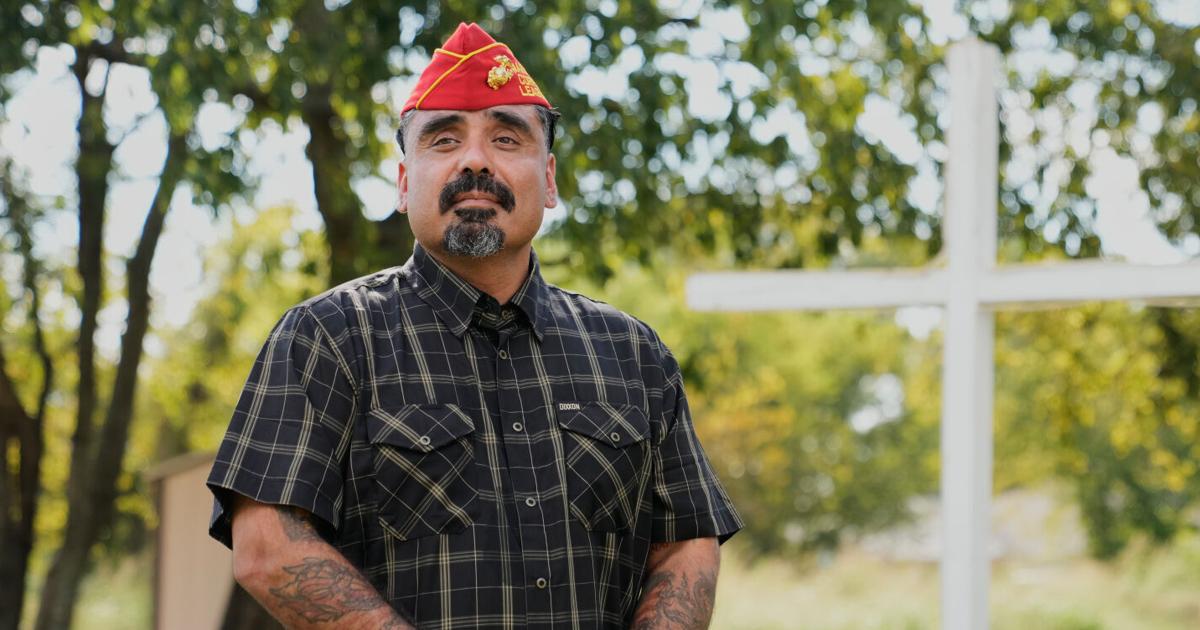
News
September 29, 2025
Veterans who lack citizenship fear being swept up in Trump's deportations
Veterans are often promised that military service will be a fast-track to U.S. citizenship, but many fear they may not be allowed to stay because of new deportation policies.
**Veterans who lack citizenship fear being swept up in Trump's deportations**
A troubling paradox is emerging for immigrant veterans: men and women who pledged allegiance to the United States and served in its armed forces now fear deportation under stricter immigration enforcement policies. While military service is often touted as an expedited path to U.S. citizenship, many veterans find themselves facing the threat of being expelled from the country they swore to defend.
The issue stems from a complex interplay of factors. Some veterans were promised citizenship during their recruitment, but bureaucratic hurdles and processing delays left them in legal limbo. Others, facing challenging circumstances after their service, such as mental health issues or substance abuse problems, may have committed minor offenses that now make them vulnerable to deportation.
President Trump's administration has made immigration enforcement a top priority, leading to increased deportations and stricter interpretation of immigration laws. This heightened scrutiny has cast a shadow of uncertainty over the lives of non-citizen veterans, many of whom are now living in fear.
Advocates for veterans are raising concerns about the injustice of deporting individuals who have served honorably in the U.S. military. They argue that these veterans have earned the right to stay in the country they defended, regardless of their current immigration status.
The situation is further complicated by the fact that many veterans are unaware of their rights or lack the resources to navigate the complex immigration system. Organizations that provide legal assistance to veterans are struggling to keep up with the demand for their services as more and more non-citizen veterans seek help to avoid deportation.
The potential deportation of veterans raises serious ethical questions about the nation's commitment to those who have served. Lawmakers are facing increasing pressure to address the issue and provide a pathway to citizenship for these veterans, ensuring that their service is recognized and rewarded, not punished. The debate continues as advocates push for legislative solutions that protect those who have worn the uniform and defended American ideals.
A troubling paradox is emerging for immigrant veterans: men and women who pledged allegiance to the United States and served in its armed forces now fear deportation under stricter immigration enforcement policies. While military service is often touted as an expedited path to U.S. citizenship, many veterans find themselves facing the threat of being expelled from the country they swore to defend.
The issue stems from a complex interplay of factors. Some veterans were promised citizenship during their recruitment, but bureaucratic hurdles and processing delays left them in legal limbo. Others, facing challenging circumstances after their service, such as mental health issues or substance abuse problems, may have committed minor offenses that now make them vulnerable to deportation.
President Trump's administration has made immigration enforcement a top priority, leading to increased deportations and stricter interpretation of immigration laws. This heightened scrutiny has cast a shadow of uncertainty over the lives of non-citizen veterans, many of whom are now living in fear.
Advocates for veterans are raising concerns about the injustice of deporting individuals who have served honorably in the U.S. military. They argue that these veterans have earned the right to stay in the country they defended, regardless of their current immigration status.
The situation is further complicated by the fact that many veterans are unaware of their rights or lack the resources to navigate the complex immigration system. Organizations that provide legal assistance to veterans are struggling to keep up with the demand for their services as more and more non-citizen veterans seek help to avoid deportation.
The potential deportation of veterans raises serious ethical questions about the nation's commitment to those who have served. Lawmakers are facing increasing pressure to address the issue and provide a pathway to citizenship for these veterans, ensuring that their service is recognized and rewarded, not punished. The debate continues as advocates push for legislative solutions that protect those who have worn the uniform and defended American ideals.
Category:
Politics